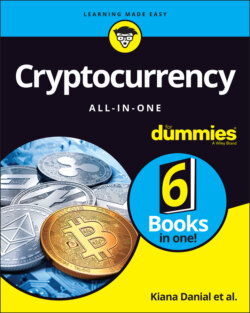Читать книгу Cryptocurrency All-in-One For Dummies - Peter Kent, Kiana Danial - Страница 80
Ripple versus Bitcoin
ОглавлениеHere are some of the key differences between these two cryptocurrencies.
Ownership and decentralization: Bitcoin is not owned by any particular person or entity, and Bitcoin the cryptocurrency is pretty much the same as Bitcoin the open-source platform. That’s why Bitcoin is highly decentralized and open source, and owned by a community that agrees on changes. This setup can make upgrades tough and is why Bitcoin has had a ton of forks (hard and soft; see Chapter 2 of this minibook) in its history.By contrast, Ripple is a private company called Ripple Labs, with offices all over the world. Ripple’s digital asset (cryptocurrency) is called XRP and is also owned by Ripple Labs. The company constantly looks to please everyone (especially its partners) and come up with consensus, which can allow for faster upgrades. It has an amendment system with which the developers seek consensus before making changes to the network. In most cases, if an amendment receives 80 percent support for two weeks, it comes into effect, and all future ledgers must support it. Basically, Ripple is a democracy that tries to avoid hard forks and nasty splits! You can find out more about Ripple and its most recent updates at
https://ripple.com/.Transaction speed and fees: This area is where Ripple really starts to shine. Bitcoin’s transaction speed can sometimes go up to an hour depending on fees. And the fees can reach $40 depending on demand.Ripple’s transactions, on the other hand, can settle in as little as four seconds. Fee-wise, even when the demand was high in mid-2021, Ripple’s transaction fees averaged $0.003 — a fraction of that of Bitcoin. You can compare different cryptocurrencies’ historical transaction fees at
https://bitinfocharts.com/comparison/transactionfees-btc-xrp.html.Number of transactions per second: At any given second, you can make around four Bitcoin transactions. Enter Ripple and recent wonder-coin Solana, and raise the number to 1,500 and 29,000 respectively. Although some Bitcoin forks aim to resolve this issue, at the time of this writing, Ripple and Solana are well ahead of the game.
Coin amount limits: Bitcoin and other mineable cryptocurrencies have finite numbers of coins, which come into the market only through mining. But XRP is limited to the 100 billion coins in circulation now, largely to appeal to Ripple’s (the company’s) biggest clients, which are large financial institutions.
